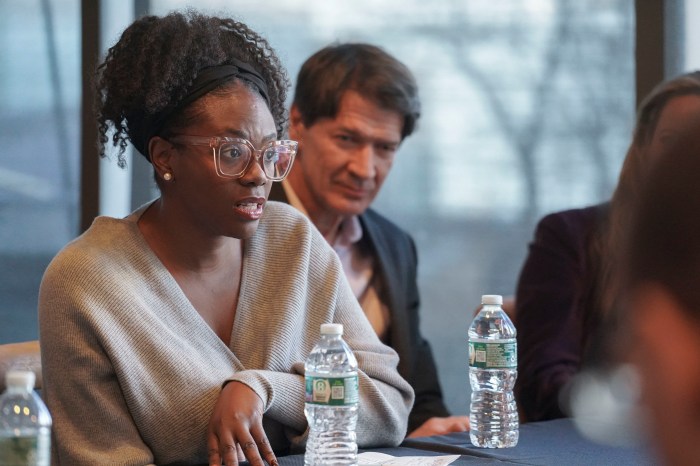At a March 20 candidates forum sponsored by Gay City News, our sister paper, the five Democrats running for mayor spent 90 minutes with hundreds of members of the LGBT community, and the results were encouraging for those hoping to move critical LGBT needs to the top of the city’s agenda in the next four years.
The candidates uniformly showed a detailed understanding of issues such as homeless youth, AIDS housing inequities, the city’s faltering commitment to HIV prevention, the state ban on gestational surrogacy contracts, and the spike in potentially deadly meningitis cases among gay and bisexual men. They also acknowledged that abuse in the New York Police Department’s stop-and-frisk practices is a queer issue –– whether it involves the targeting of transgender women and LGBT youth of color or the false arrests of gay men in video stores.
In a forum of this sort, the greatest attention inevitably focuses on the purported frontrunner –– in this case, City Council Speaker Christine Quinn. The fact that a vocal minority within the LGBT community has, in recent years, targeted the woman who could become the city’s first openly lesbian or gay mayor for harsh criticism gave this event particular political resonance. The media was watching to see if she would stumble on her home court.
To be sure, some of the criticisms Quinn’s opponents leveled at her –– particularly regarding her refusal at the time to endorse paid sick leave legislation now pending in the City Council –– struck a chord with many audience members. Public Advocate Bill de Blasio and former City Comptroller Bill Thompson proved particularly adept at eliciting crowd encouragement for their volleys against the speaker.
That said, it is also true that Quinn earned the warmest and most enthusiastic applause from the audience at the conclusion of her opening and closing statements.
It actually appeared that some audience members both applauded the Council speaker and then jumped in to second certain criticisms thrown her way.
Quinn is clearly a potentially history-making figure. At the same time, many progressives who have known her over the past two decades were befuddled by her resistance (since reversed) on sick leave, a posture they viewed as fundamentally at odds with her political roots.
In the current political season, that issue had become something of a proxy for other nagging doubts that have emerged over the seven years of her speakership –– misgivings that coalesced most dramatically when she offered Mayor Bloomberg indispensible Council support for his efforts to run for a third term in 2009.
At the forum, she was at pains to emphasize that paid sick leave is not a question of if — it’s a question of when (that “when” came to pass just over a week later). On March 20, however, Quinn continued to assert that the economy was simply too soft to impose a new government mandate whose effect would be felt primarily by small businesses.
Among the other candidates, de Blasio and Thompson emerged at last week’s forum as the most plausible alternatives, and former Councilmember Sal Albanese, in the role of a truth-teller, burst the many bubbles created by pretty words. Comptroller John Liu arrived a half hour late and unfortunately never seemed to find his footing.
For now, though, Quinn seems a comfortable frontrunner. And she will rightly enjoy all the weighty burdens of that position as the campaign heats up.
This editorial is reprinted from a slightly longer version that first ran in Gay City News.



































